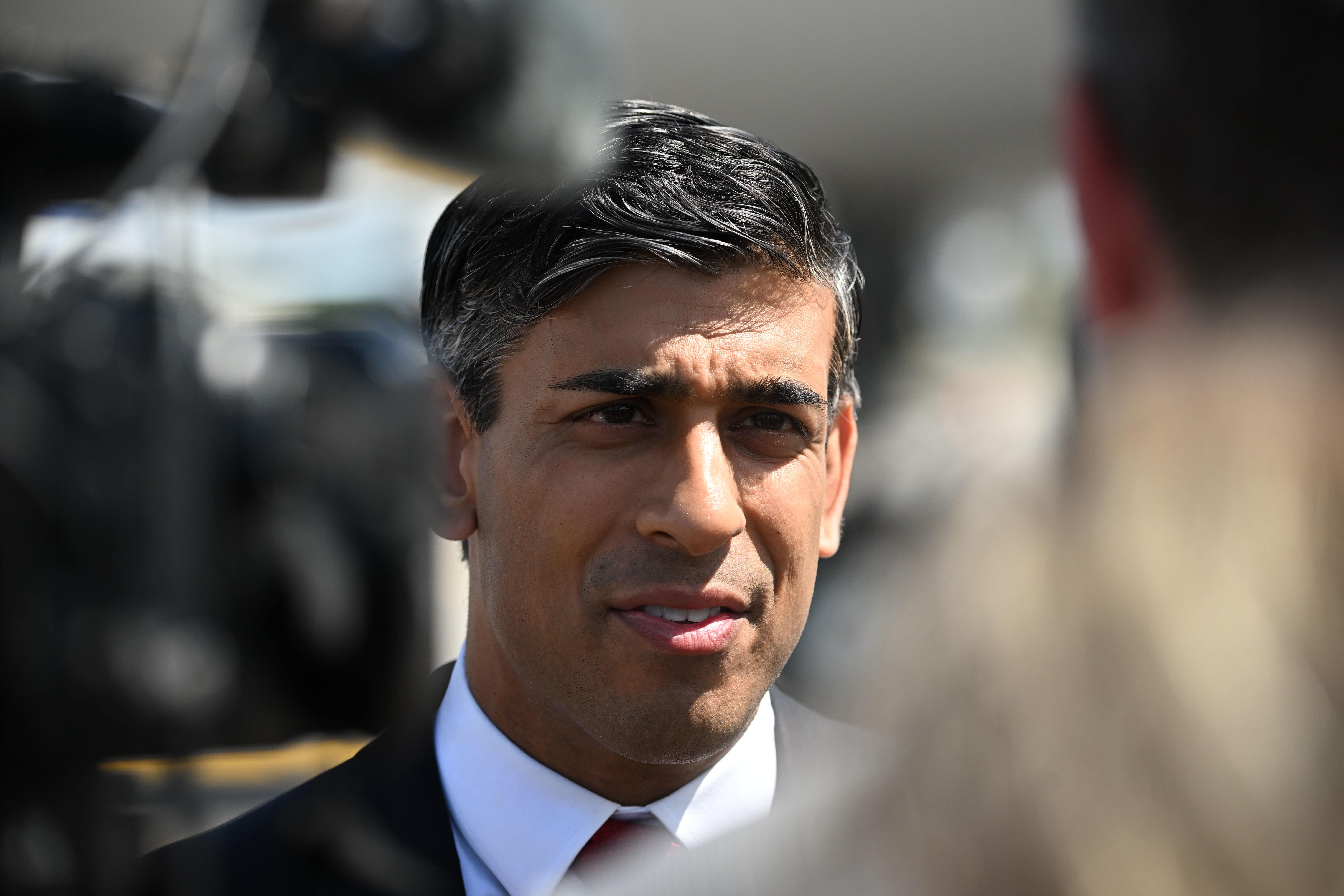Sunak insists he will take responsible approach to public pay deals
Rishi Sunak said the Government had to live within its means and any pay award had to be affordable.

Your support helps us to tell the story
From reproductive rights to climate change to Big Tech, The Independent is on the ground when the story is developing. Whether it's investigating the financials of Elon Musk's pro-Trump PAC or producing our latest documentary, 'The A Word', which shines a light on the American women fighting for reproductive rights, we know how important it is to parse out the facts from the messaging.
At such a critical moment in US history, we need reporters on the ground. Your donation allows us to keep sending journalists to speak to both sides of the story.
The Independent is trusted by Americans across the entire political spectrum. And unlike many other quality news outlets, we choose not to lock Americans out of our reporting and analysis with paywalls. We believe quality journalism should be available to everyone, paid for by those who can afford it.
Your support makes all the difference.Decisions on pay awards for millions of public sector workers will come by the end of next week, Rishi Sunak indicated as he stressed that any rise would need to be affordable.
The Prime Minister said no final decision had yet been reached on public pay settlements, but suggested an announcement would come before MPs leave Westminster for their summer break.
He said he wanted to be “responsible” with public finances but warned that “is not always easy” as he struggles to balance workers’ demands for a decent pay rise with the need to curb inflation.
Reports in The Times have suggested the independent review bodies have recommended that teachers should receive a 6.5% pay rise for 2023-24, while police officers, prison officers and junior doctors should all get 6% or more.
The Government believes this will cost in excess of £5 billion and, in the absence of increased borrowing or tax hikes, funding would have to come from departmental cuts.
We all live within budgets, Government is no different to that, and we need to see what is affordable for Government and indeed the taxpayer because it is the taxpayer that is ultimately paying for all of this
Speaking to reporters accompanying him on his visit to the Nato summit in Vilnius, Mr Sunak said: “We are going through it all now, no final decision has been reached on the public sector pay settlements.
“They typically are done before the recess, that is the typical timeline.”
The Commons’ last sitting day is July 20, which will also see three by-elections fought in what amounts to a test of Mr Sunak’s leadership.
On his approach to the pay offers, the Prime Minister said: “What I would say is our general approach to these things is that I’m going to be guided by a couple of principles.
“The first is fairness. I want to make sure we are fair and reward our public sector workers for the fantastic work they do.
“Second is what is affordable. We all live within budgets, Government is no different to that, and we need to see what is affordable for Government and indeed the taxpayer because it is the taxpayer that is ultimately paying for all of this.
“And lastly it is what is responsible.
“Everyone can see the economic context that we’re in with inflation where it is – borrowing costs for Government, not just in the UK but across the world, are rising.
“We need to look at that context and then decide what is the right thing to do. That is not always easy but that is what being responsible looks like, and that is why we will take the time to get this right.”
Downing Street did not rule out funding recommended increases through departmental cuts.
No 10 said discussions would be had with departments about whether proposals put forward by the pay review bodies are appropriate given the inflationary pressures and “once we have a decision we will set out how they will be funded.”
The Prime Minister’s official spokesman said: “We need to stay disciplined, we need to plan public finances responsibly.
“Part of that obviously involves pay restraint and clearly double-digit pay rises funded by borrowing would only feed into these inflationary pressures and in the end take more out of people’s pay packets because of the inflationary pressures.”
The spokesman added: “This money must come from somewhere and I think any funding decisions, whether it’s Agenda for Change (the NHS pay deal) or elsewhere, require the Government to balance the books and departments to balance the books.
“We will have discussions with departments as we consider how best to respond to the recommendations from the pay review bodies and whether they are appropriate given the inflationary pressures we have, and obviously once we have a decision we will also set out how they will be funded.”
Anger over below-inflation pay rises has fuelled a series of industrial disputes within public services.
There is also likely to be little cheer for Tories seeking pre-election tax cuts unless inflation is brought under control.
Chancellor Jeremy Hunt has made clear that cutting inflation, rather than slashing taxes, is his priority.
Mr Sunak said: “The Chancellor and I are completely united on wanting to reduce taxes for people. Of course we are – we’re Conservatives. He’s said that, I’ve said that, and we want people to be able to keep more of their own money.
“But the number one priority right now is to reduce inflation and be responsible with government borrowing.
“That is absolutely the overriding economic priority, and that takes precedence over everything else.
“So, given the context we face, we are going to make sure that we bring inflation down, and we don’t do anything to make the situation worse or last longer.”